Talent Sourcing and Climate Research: My Summer Working for a Global Impact Innovation Firm
By Reese O’Brien ’24
The Global Research Institute’s Summer Fellows Program provides international experiential learning opportunities to W&M students. This post is one installment of a series highlighting the 2023 Fellows’ key discoveries and formative experiences.
While most of us understand that the climate crisis has devastating global consequences, we less often talk about the injustice of how these impacts are distributed. The communities that are most harmed by climate disasters, primarily located in the Global South, are the same communities that have historically contributed the least to climate emissions. Thus, there is a critical need for climate action programs that foster both adaptation and resilience. This summer, I had the opportunity to contribute to these solutions through my internship as a Global Research Institute Fellow with BFA Global, an impact innovation firm, at their Nairobi office.
While interning at BFA, I worked primarily on talent sourcing for their TECA project (Triggering Exponential Climate Action) — which aims to launch 100 fintech ventures by 2026 to foster the climate resilience of vulnerable communities. Amy Browning — another Summer Fellow — and I were tasked with identifying high-potential entrepreneurs and reaching out to encourage them to apply to the second wave of the program through LinkedIn and Google Meets. We also completed an ecosystem mapping project in which we extensively researched the climate tech sector in East Africa to identify potential organizational partners for TECA. As the summer went on, we branched out to assist with another BFA project: Universal Climate Insurance (UCI). UCI aims to create a platform that will connect wealthy consumers from the West with vulnerable communities impacted by climate disasters in the Global South. Underpinning UCI is the recognition that the communities most harmed by climate disasters are the same communities that have historically contributed the least to climate emissions. UCI will provide an avenue for Western corporations and individuals to donate directly to these communities to build global climate resilience. Since UCI is still in its early stages, most of our work for this project was research-based. We collected information about communities where UCI could be piloted and conducted research on potential partner organizations around the world.
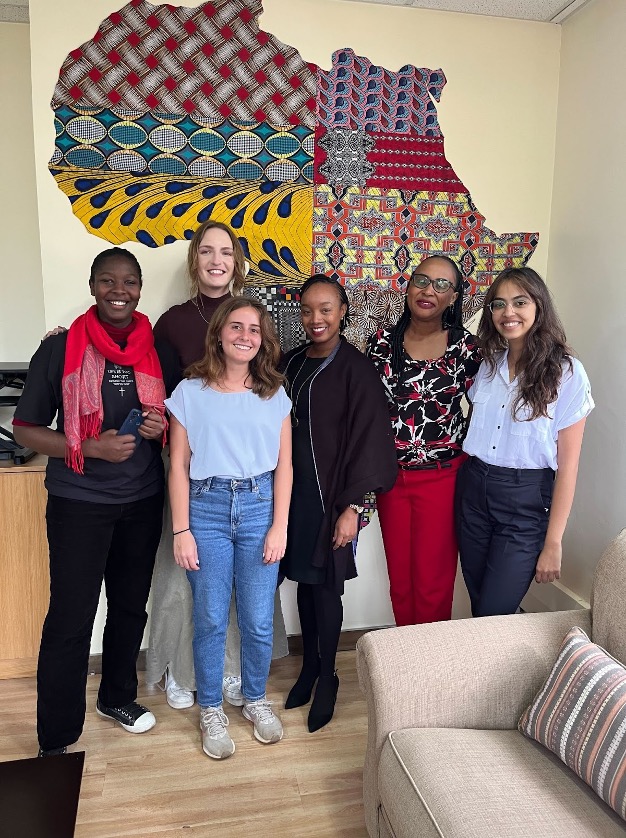
Me at the BFA office with my coworkers Sue, Amy, Shirely, Anne, and Shivani.
As a rising senior, working for BFA Global was an eye-opening experience that prepared me for professional life after college. Because of the pandemic, this was my first time interning in-person after a string of remote work experiences. Being in an office showed me how important an organization’s work culture is for creating a positive and meaningful work experience. At BFA, we were encouraged to participate in team meetings, chat with coworkers during lunch breaks, and explore projects beyond the venture launcher program. I now know to search for future employers who make an effort to create a supportive and collaborative work environment like BFA. My time as a Summer Fellow also pushed me to consider new career pathways. I had always planned to enter the nonprofit or public sector after graduation — my interests in social impact work and developing policy seemed best aligned to positions in these sectors. Combating climate change, in particular, was something that I always thought of as only advocacy work. TECA exposed me to the many ways in which I could become involved in climate change initiatives through the private sector and affirmed the importance of mobilizing these sources of funding for the global good.
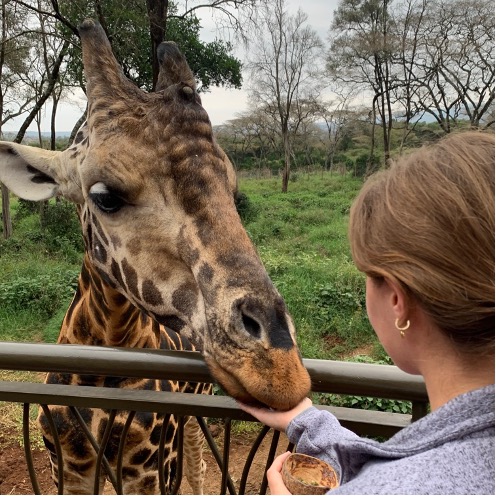
Feeding a giraffe at the Giraffe Center in Nairobi.
While the professional aspects of my fellowship were important, they paled in comparison to the personal experiences I gained. This was not my first time living in another country — I studied abroad in the UK and Spain last year — but it was undoubtedly my most impactful trip. In Kenya, I was not with a large cohort like with my previous programs: it was up to me to navigate the country and culture on our own. This led to a lot of mistakes, learning moments, and adventures. We figured out how to mentally convert shillings to dollars, recognize basic Swahili sayings, navigate M-Pesa (the Kenyan mobile money system), and always stick to the left of the sidewalk instead of the right. We climbed Mount Longonot and swam through tide pools at the Kenyan Coast. We saw lions, giraffes, and elephants while on safaris at Amboseli and Masai Mara. We flew in a plane that had only five other passengers and took tuk-tuks in Diani. And we explored everything that our home base of Nairobi had to offer, including its restaurants, shopping centers, nail salons, museums, and the beautiful arboretum across the street from our apartment. As someone who had never before lived in a large city or worked abroad, being in Kenya was an invigorating experience that made me more confident in my ability to live, work, and travel on my own.
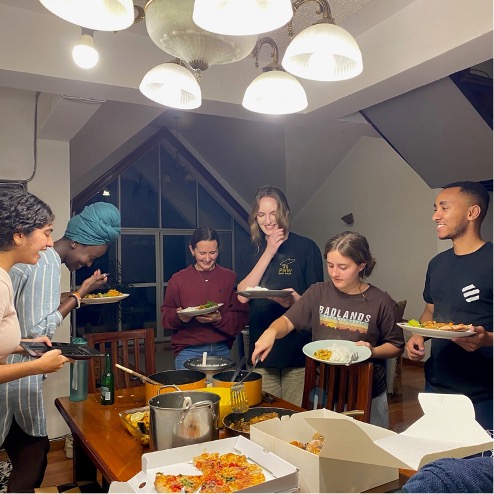
A potluck dinner party at our home (Sunning Hills) with my housemates.
What made our time in Kenya truly special were the people we met, especially our co-workers and roommates. From our first day in Nairobi, our coworkers were incredibly welcoming and kind. One of my favorite parts of working in the office was getting to know them over our lunch breaks, when we got to sit together and talk about our work projects and personal lives. Through these conversations, I got to learn more about office life, working as a consultant, and Kenyan society at large. Outside of work, I had similarly impactful discussions with my housemates, who were five young expats from around the world, who live and work in Nairobi. It was inspiring to learn more about the different paths that had led them to Nairobi, and speaking with them pushed me to consider the possibility of working abroad after graduation as well.
In all, my summer as a GRI Fellow with BFA Global helped me to grow both professionally and personally. Working on projects like TECA and UCI exposed me to the potential of the private sector in addressing global challenges — particularly climate change — and expanded my thinking about potential career paths. I am excited to watch the second wave of TECA fellows tackle some of our world’s greatest Blue Economy challenges this year, and follow along as UCI continues to gain traction in building global climate resilience. Moreover, I got the chance to meet some amazing people and become more confident in my ability to navigate unfamiliar situations. I am very grateful to GRI for making this unforgettable experience possible.

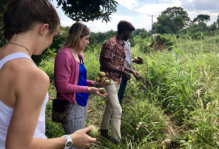
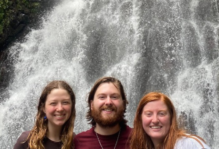
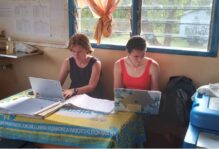
No comments.